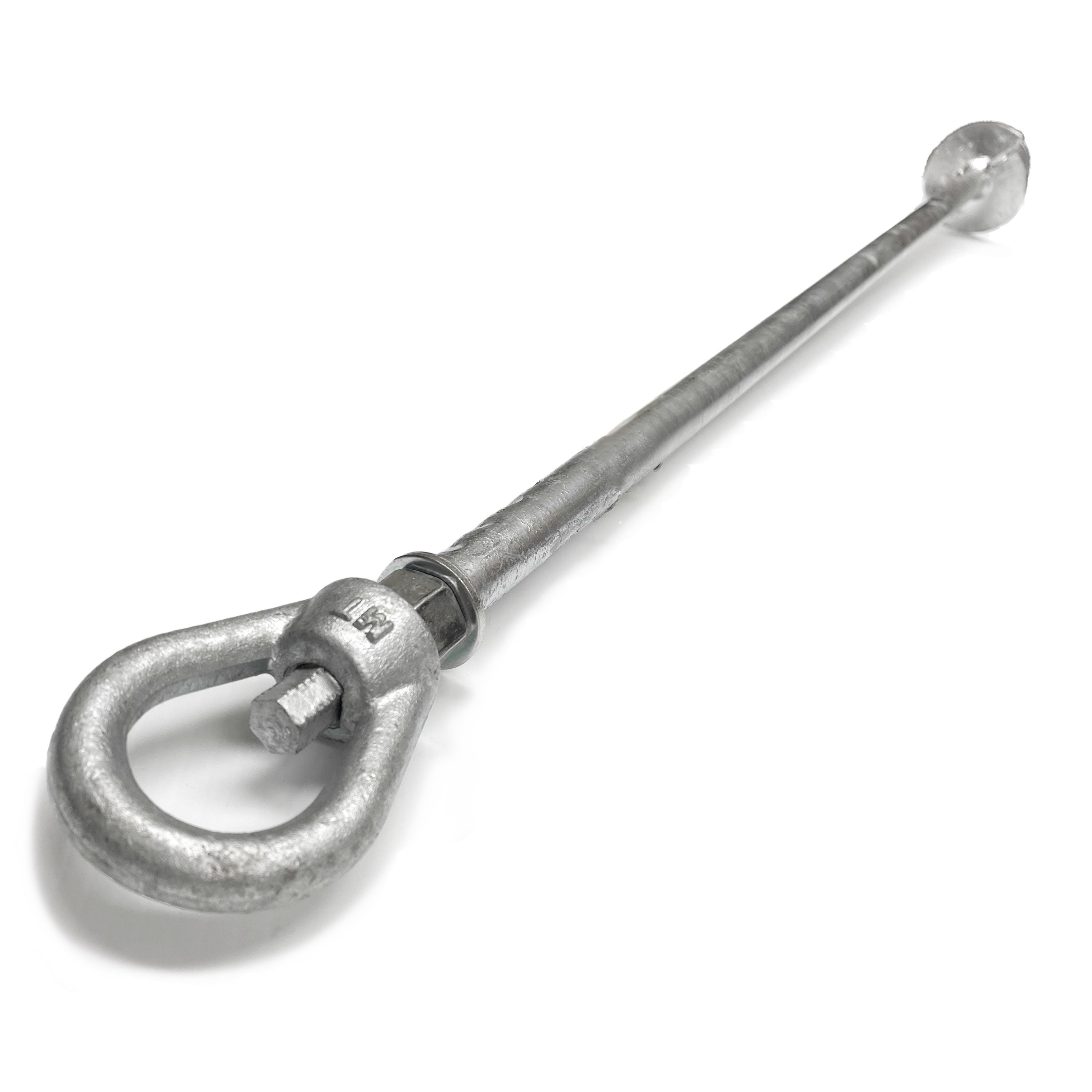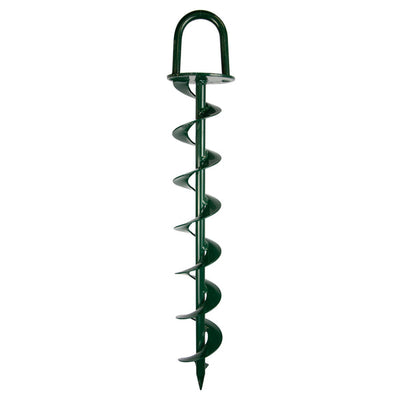Explore the Various Sorts Of Ground Anchor for Your Next Job
From auger anchors, which excel in diverse soil problems, to stake anchors developed for temporary setups, the options are many. Furthermore, concrete and screw supports present one-of-a-kind advantages in particular circumstances, while deadman anchors are customized for applications calling for resistance to lateral pressures.

Auger Anchors
Auger anchors are a popular choice in numerous construction and landscape design tasks due to their distinct design and efficient securing capacities. These supports contain a helical screw-like shaft that is driven into the ground, enabling a protected and steady hold. The spiral style assists in very easy setup and takes full advantage of resistance versus lateral forces, making auger anchors specifically effective in applications such as secure fencing, short-lived frameworks, and disintegration control.
The setup process of auger supports is fairly uncomplicated. Auger anchors can be easily gotten rid of and reused, which adds to their cost-effectiveness and sustainability.
Among the considerable benefits of auger anchors is their capacity to disperse tons equally throughout the surrounding dirt, decreasing the threat of dirt disturbance and reducing environmental impact. Furthermore, they are much less susceptible to heaving or loosening up gradually contrasted to standard securing techniques. Auger supports are an exceptional choice for tasks needing reliable and durable anchoring services.

Risk Anchors
When it concerns safeguarding structures in a range of exterior applications, stake anchors offer a uncomplicated and reliable solution. These anchors are commonly created from long lasting materials such as steel or light weight aluminum, created to endure ecological anxieties while giving optimal stability. Their basic layout enables quick installation, making them a suitable option for permanent or temporary anchoring demands.
Risk supports are especially helpful in securing camping tents, canopies, and various other light-weight structures versus wind and weather. They function by being driven into the ground at an angle, producing a solid hold that withstands pull-out forces - Ground Anchor. The performance of stake supports depends on numerous aspects, including dirt type, moisture content, and the angle of installment
For added safety, many risk anchors include add-on factors for ropes or bands, enabling tension adjustments as necessary. In applications such as landscaping or construction, they can properly maintain devices or frameworks on unequal terrain. Overall, risk anchors give a functional and cost-efficient option for protecting numerous outdoor installations, making them a preferred choice for contractors and DIY fanatics alike.
Concrete Anchors
Concrete anchors offer a durable service for safeguarding frameworks to concrete surfaces, ensuring security and safety and security in numerous applications. These anchors are essential for jobs varying from domestic building and constructions to large commercial installments. They come in different kinds, consisting of development anchors, adhesive supports, and undercut anchors, each created for details load needs and environmental problems.
Adhesive supports make use of high-strength epoxy or resin to bond the support to the concrete, using exceptional load-bearing capacities, particularly in cracked concrete scenarios. Undercut anchors produce an unique form within the concrete, offering exceptional holding power, particularly in applications where tensile lots are widespread.
Selecting the suitable concrete support involves taking into consideration factors such as the weight of the lots, the problem of the concrete, and ecological conditions. Proper installment techniques are crucial to make certain ideal performance and integrity. When performed appropriately, concrete anchors significantly boost the structural stability of numerous tasks, making them vital in modern construction methods. Recognizing the particular requirements of your task will help in picking the ideal kind of concrete anchor for the job.
Screw Anchors

Screw supports are a flexible securing solution that can be successfully used in a variety of applications where traditional concrete supports might not be sufficient. These anchors contain a helical design that permits them to be conveniently driven right into the ground, making them optimal for usage in soil and other substratums. Their distinct framework provides exceptional holding power and resistance to pull-out forces, making them ideal for countless projects, from landscape design to structural assistance.
One of the primary advantages of screw supports is their ease of installation. They basics require very little equipment and can often be set up without the need for excavation, which saves both time and labor expenses. Furthermore, screw supports can be removed and recycled, providing a lasting remedy for short-lived applications.
Screw supports are particularly advantageous in locations where dirt problems are testing, such as loosened or sandy dirts. Their capability to advice be installed at differing midsts permits for customization based on specific task requirements. Generally, screw supports provide a trustworthy and effective anchoring approach, making them a superb choice for contractors and engineers seeking efficient remedies for their tasks.
Deadman Anchors
Deadman supports function as a durable option for supporting structures in challenging problems, specifically where conventional anchoring approaches may drop brief. These anchors contain large, heavy items hidden underground, which produce resistance versus side forces. The layout usually includes a straight component, such as a block of concrete or a steel plate, hidden in the soil, to which straps or cable televisions are attached.
The performance of deadman anchors hinges on their capability to disperse loads over a larger area, minimizing the danger of failing in unstable soil conditions. They are especially helpful in applications such as preserving walls, short-lived frameworks, and incline stabilization, where dirt movement can endanger the stability of the framework.
Installation of deadman anchors needs mindful preparation to guarantee they are placed at the appropriate depth and positioning, maximizing their load-bearing capability. While they might call for even more labor and material than light-weight anchors, their integrity in damaging problems makes them indispensable for long-lasting projects. Deadman supports are flexible and can be adapted to different applications, making them a go-to choice for designers encountering one-of-a-kind challenges in their jobs.
Conclusion
In summary, choosing the suitable type of ground support is crucial for making certain security and safety and security in various tasks. Auger supports master varied soil conditions, while risk supports fit momentary applications. For concrete surfaces, expansion and adhesive supports provide dependable alternatives, and screw anchors offer convenience in difficult surfaces. Deadman anchors are especially effective in withstanding lateral forces for retaining wall surfaces. Careful consideration of these alternatives will improve project end results and structural integrity.
Furthermore, concrete and screw supports existing one-of-a-kind advantages in details scenarios, while deadman supports are customized for applications needing resistance to lateral pressures - Ground Anchor.Auger anchors are a prominent option in various building and construction and landscape design tasks due to their unique layout and effective more information securing capabilities. They come in different types, including development anchors, sticky anchors, and undercut supports, each developed for details tons requirements and ecological problems
Glue supports utilize high-strength epoxy or material to bond the anchor to the concrete, supplying superior load-bearing abilities, particularly in split concrete circumstances. Generally, screw anchors provide a efficient and dependable securing technique, making them an exceptional selection for professionals and engineers seeking reliable services for their projects.